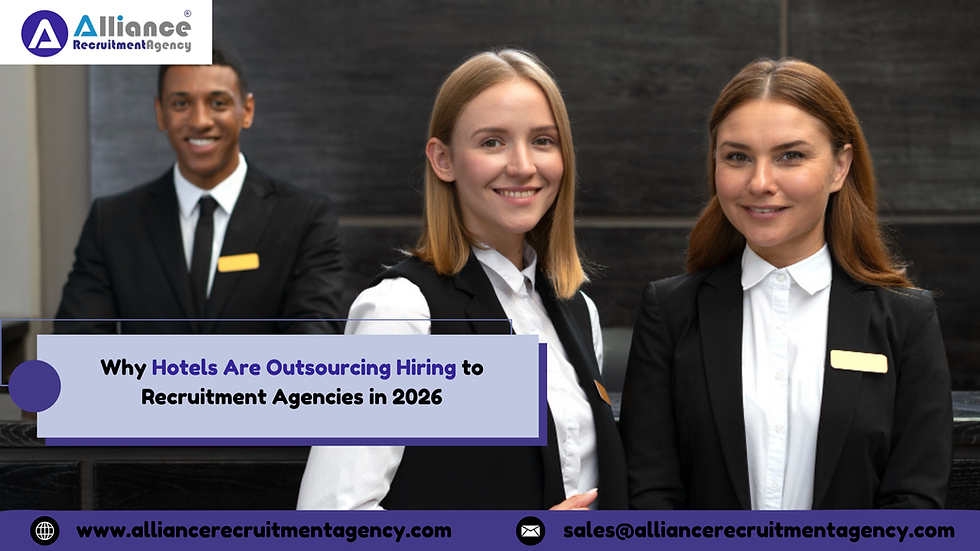Finding the Right Fit: The Importance of Cultural Alignment in CEO Recruitment
- Kelvin Madris
- Apr 1, 2025
- 4 min read

The stats are chilling in the sense that a good percentage of CEO departures are into that 18 months mainly due to cultural expectation mismatching. Therefore, this is not just an expensive error; it can derail the entire trajectory of the organization. In C-suite recruitment with its stakes, accuracy becomes very important; here, finding the right leader with the right skill set is just half of the task; and a specialized chief executive officer recruitment agency becomes effective. The other half of successful leadership rests on cultural alignment-but what exactly does cultural alignment mean, and why is it key?
Understanding Cultural Alignment
Culture is the unseen force that gives birth to corporate identity- values, beliefs, behavior, and more. A CEO leads a company, but they also represent its culture. When a CEO's values and style of leadership clash with the established culture, matters can turn disastrous. Following this, one can witness such things as unhappy employees, reduced productivity, and reputational damage. Picture a scenario where an innovative, flexible startup hires a CEO with extensive experience in a bureaucratic corporation- a chancy clash will be there.
Cultural Fit Assessment by a CEO Recruitment Agency
A specialized CEO recruiter becomes indispensable at this point. They do not simply the candidate's resume but look carefully into his personality traits and leadership style. Through extensive interviews, behavioral tests, and, in some cases, psychometric evaluations, they create a picture of a candidate's cultural feasibility. These aspects help highlight the view that it takes more than the technical skills of a CEO to succeed; it also requires the ability to inspire and motivate along with seamlessly integrating into the company's existing ecosystem.
Agencies will also invariably play an important role in terms of educating the actual company as well as the candidate. They assist the company in formulating its cultural values and expectations, and they help candidates determine their fit with the company as well.
Key Considerations for Cultural Alignment
Several factors contribute to cultural alignment:
Leadership style: Is the company willing to regard an executive as transformational, collaborative, or directive?
Communication: Open and transparent, or more hierarchical?
Work ethic and values: Does the company favor innovation, risk-taking, or stability?
Industry-specific nuances: Different industries have different cultural norms.
Company size and stage of growth: A start-up culture differs enormously from a corporation.
Inclusive and Diversity: A commitment to diversity is perhaps the most important among the healthy characteristics found in a particular company's culture.
Benefits of Having a Culturally Equated CEO
If the company culture finds activity within itself and the CEO and the EST president, a series of advantages will be unlocked:
Engagement and improvement in the morale of the employees.
Assessable communication to flourish cooperation.
Enhanced strategic execution and innovation.
A stronger company reputation and brand.
Reduced risk of costly CEO turnover.
Increased company profitability.
A Practical Checklist for Companies and Candidates
For companies: Clearly define your culture, communicate it to the agency, and have key players participate in the interviews.
For candidates: Learn your potential employer's culture in-depth, think about your values, and ask penetrating questions in the interview process.
Conclusion
It has become a necessity, not just a luxury, for a culturally-aligned CEO hiring. When a company hires an Alliance Recruitment Agency, it adds to the chances of finding a leader who has the requisite skills as well as the right cultural fit. Investing in cultural alignment will multiply in value in terms of stability, productivity, and ultimately business success.
If you are interested in enlisting help for your search for a culture-fit CEO, contact us at Alliance Recruitment Agency today.
FAQs:
1. Do you consider cultural fit, equally important as skills and experience, during CEO recruitment?
Ans: Cultural alignment is critical during the onboarding process and to the long-term success of the CEO. A very talented CEO with a poor cultural fit would wreak internal havoc, destroy morale, and cause turnover. Skills can be learned, but value alignment and leadership styles with the basic culture of an organization will be very difficult to accomplish and are key to sustainable leadership.
2. What is the agency doing the CEO recruitment examining in terms of candidates' cultural fit?
Ans: The agency would utilize a combination of different methods including in-depth behavioral interviews, psychometric tests, and exhaustive reference checks. Candidates' leadership style, values, and communication patterns are emphasized and compared to the organization's established cultural parameters. This also includes a cultural due diligence exercise that investigates and researches the potential cultural fit.
3. What are a few red flags that can hastily demonstrate the possibility of a cultural mismatch during the process of recruiting new CEOs?
Ans: For instance, objectionable signs could be given by the candidate in such cases, which only confound the individual, such as an inability to define their values clearly, one lacking in interest towards the company culture, or a history of switching jobs frequently due to cultural mismatches. Another major red flag would be any discrepancy between any stated values from the candidate and their past behavior.
4. How can a company guarantee that it communicates its company culture to potential CEO candidates in an appropriate manner?
Ans: A company should set up a culture profile containing its fundamental values, leadership expectations, and work environment. There should also be transparency with candidates when discussing the company culture, allowing candidates to interact with present company employees. Documents discussing the company culture might also be an added advantage.
5. What and to what extent could hiring a culturally fit CEO affect the organization in the long term?
Ans: He is creating a positive workplace, improving employee engagement, fostering innovation, and improving stakeholder reputation for the company. Stability, good financial performance, and a strong foundation for growth and success in the long term are then achieved.






Comments